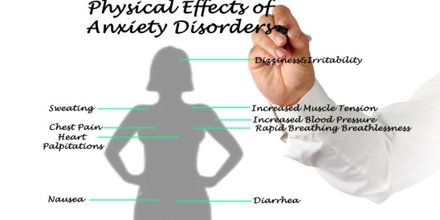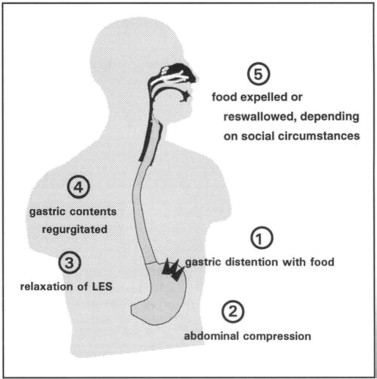
Rumination is a state in which humans repeatedly and unknowingly spit up or (more commonly) partially digested foods from their stomachs, often regurgitating it, rehew it, or both. Rumination generally occurs after eating too much. It is not known exactly how many people suffer from this condition. Treatment can range from medications to behavioral therapy.
The disorder is most common among infants, children, and older adults
Ruminating occurs when food from the small intestine is expelled too rapidly from the stomach. A variety of physiological conditions can cause this condition. It is most common among babies who are hungry, unable to control their appetite, or experiencing gastronomical pain. Many infants experience intermittent vomiting of indigestible or partly digested material, while others experience the chronic form of the condition, which is usually brought on by malabsorptive diseases. It can also be caused by an abnormal number of motility cells in the jejunum (a part of the small intestine).
The symptoms of rumination vary depending on the location of the small intestine in the abdominal cavity. In the duodenum, the symptoms include abdominal pain, diarrhea, bloating, nausea, and vomiting. In the ileum, the symptoms include abdominal cramps, pain, and excessive flatulence. In addition to the abdominal symptoms, there may also be discomfort in the chest, upper stomach, and a feeling of fullness.
In most cases, patients with the condition do not suffer from symptoms when the food that they have ingested is passed through the digestive system. But in the presence of severe malabsorptive diseases, such as celiac disease or a chronic disorder of the large intestine, patients experience symptoms such as regurgitation, nausea, vomiting, flatulence, abdominal pain, constipation, abdominal bloating, abdominal discomfort, abdominal cramps, gas, diarrhea, abdominal pain, and/or abdominal cramps.
A person suffering from rumination can still eat normally and engage in normal activities. Some people can even exercise without having a symptom. However, individuals who experience the symptoms should seek medical attention because the symptoms are not always associated with other conditions. Other disorders, such as ulcerative colitis, chronic pancreatitis, or Crohn's disease, can lead to the same symptoms.

There are some medications and psychosocial factors that trigger the onset of symptoms. These include stress and anxiety. Eating too much and being overweight. Depression, emotional trauma, loss of a loved one, and the use of stimulant medications (cocaine, methamphetamine, and heroin) are examples of psychosocial factors that trigger the onset of symptoms.
Children are often more likely to develop the condition if they are not given adequate nutrients, which they obtain from their diet or from their mother's breast milk. Sometimes, the symptoms can be caused by nutritional deficiencies, but children can also develop the condition due to malnutrition.
Stress can also be a triggering factor, although the symptoms do not usually occur in younger children
People suffering from rumination need to be aware of their symptoms, their triggers, and their treatments. Because of the complex nature of the condition, doctors and psychologists can not cure a patient of rumination; however, they can help them manage it and keep it under control.
It is often difficult for the patient to identify the symptoms of chewing rumination. The most common symptoms include heartburn, gas, bloating, and flatulence. In addition, this condition can affect the patient's ability to concentrate and may have an upset stomach. Other symptoms the patient may experience include headaches, blackouts, and depression. A person experiencing symptoms should seek medical attention as soon as possible.
The reason why someone has this condition may be unclear. Doctors often try to determine whether the condition is psychological or physical, and whether the cause is psychosocial or physical. If the condition is psychosocial, the first step may be to identify the person's triggers and try to determine if the symptoms are related to depression, emotional trauma, stress, or stress.
Physical signs of this condition include abdominal pain, bloating, flatulence, nausea, and gas. Psychological signs include depression, anxiety, and fatigue. The person may also develop insomnia. To diagnose the disease, doctors may do physical tests asiola.co.th, such as blood tests or x-rays. Blood tests can help doctors determine if a person has nutritional deficiencies, vitamin deficiencies, anemia, or malabsorption.
Medicines that are used to treat symptoms include antidepressants, laxatives, and enemas. The most effective drugs are those that increase the amount of fluid in the stomach, such as cimetidine and indomethacin. Other medications that can be taken for symptoms include clonidine, which helps lower stomach pressure, and senna.

